- Home
- Peter Straub
Floating Dragon Page 22
Floating Dragon Read online
Page 22
12
Years before, Officer Royce Griffen had been given a job he hated, but at least on the extra shift imposed by the flu he worked as he thought a cop should, driving a patrol car. Those eight hours were his dessert. The eight-to-four shift he endured as he would a bad dinner, knowing that when it was over he could get into a black-and-white and do real police work.
The trouble usually started in the locker room. If Turtle Turk was either coming on or going off shift, he would invariably try to amuse the other policemen. “Roycie Woycie,” Turtle crooned when he saw him, “will you ring my doorbell today? Hey, Roycie, what do you say when some big old babe in a nightgown opens up? ‘Officer Roycie Woycie Griffen, ma’am, at your service’? Do you show ‘em your big gun, Roycie?”
Turtle usually waddled back and forth before his locker at this point, mincing and rolling his eyes. “Ooh, ma’am, I’m brave Roycie, and I’m here to tell you how to make sure no bad man ever comes in when you don’t want him to. . . . No, ma’am, you see entry is one of the biggest problems a bad man has to overcome. . . .”
Unfortunately, Royce Griffen was only as tall as the official minimum for Hampstead officers, five-foot-six, and weighed only a hundred and forty pounds, or he would have attacked Turtle right in the locker room. But the other policemen knew by looking at Royce that he would jump on any man that laughed at Turtle’s antics. His face went nearly as red as his hair.
“Oh madam, oh madam,” Turtle crooned. “It’s irregular, I know, but I wonder if you could accompany me to the special police showing of The Choirboys in a couple of weeks? I think I can promise you a thrilling time—it starts at midnight, you see, and all the boys in blue will be there, and, ma’am, I’m built like a jockey so’s I can ride all night—”
“Can it,” he said.
“Yes, Roycie,” Turtle said, mincing away.
God, he hated that job. If he were still married, he could talk about it at home and explain how it demeaned him to spend his days soft-soaping housewives, how he had been picked because he was the smallest cop on the force, how the job was only a P.R. stunt dreamed up by the first select-woman. But his wife had left him after three years of trying to live on a cop’s pay. Royce didn’t blame her, he’d leave himself too, if he could.
The job had come about because of the steady rise in burglaries in the past three years; the murders of Stony Friedgood and Hester Goodall meant that Royce’s frequent requests to be reassigned were doomed to go ignored for a long time to come. For two years he had been knocking on doors, introducing himself, and counseling householders about burglary prevention. He inspected locks on doors, catches on windows, tested alarm systems, made recommendations—and all this drove him crazy. If a thief wanted to get into a house, he got in. That was all. You could make it harder for him, but he’d get in if you had dead bolts, savage mastiffs, and sonic beams that swept across the living-room floor at timed intervals. Alarm systems went off randomly, dogs slept, people forgot to lock their doors. His life was a waste. A girl scout could break into any of the houses he had inspected.
Two years before, he had divided the city into quadrants, and then each quadrant into quadrants. He was now in section three of the third quadrant, and if he could not get himself reassigned he would be knocking on doors like the Avon lady for another eighteen months.
Section three of quadrant three took in the lower end of Greenbank, including Mount Avenue, all the way to the Hillhaven border. Ordinarily Royce Griffen would have been pleased to get a peek at the interiors of these houses; but doing his hated job while he peeked made him feel like a servant; the big houses with their spotless interiors reminded him of everything he had sacrificed to become a police officer. Since his divorce, Royce shared the top floor of a house near the trailer park with another divorced cop.
His second stop that morning was at a large white house overlooking Gravesend Beach which he had noticed for years without ever knowing who lived there. The mailbox was no help, bearing only the numeral five. Royce turned in between the gates. He had never before really taken in how much land surrounded the house. He could have been driving through a park. The drive angled off through trees, then returned toward the house on its bluff above the sea wall.
The lawn, unusually for such a place, had been permitted to get shaggy. Bobby Fritz must have been laid up with the flu, Royce imagined. Here and there he could see dandelions lolling against the green.
Royce pulled up before the front door, got out of the patrol car and rang the bell. He adjusted his holster, tugged his hat into the proper angle. He straightened his shoulders to make himself as tall as he could get. Here we go again, he thought unhappily.
An elderly woman in a white uniform opened the door. She looked both angry and distressed: as she glared at him, he saw that she had been crying.
“Good morning,” he said. “I am Officer Griffen of the Hampstead Police. Is the lady of the house in?”
“Pah,” she said, “there’s no lady here.”
“Well, then. I have been assigned to special duty in burglary prevention. May I take a little of your time and check out your locks, alarms, and so forth, and make recommendations for their improvement? Here in Hampstead, you know, we have an average of two burglaries every hour.” All this was memorized, and Royce spoke it automatically. He was looking not at the cranky housekeeper or maid, whatever she was, but at the lock on the front door. A simple Yale.
“Doctor,” the woman said, turning away from him, “a police officer.”
Far back in the hall, a trim-looking man in a white suit came silently through a door. He was smiling; was almost hypnotically handsome. Royce stood even straighter. “Oh yes, Muriel,” he said, coming nearer. “We must make the officer at home. Get him a cup of coffee, please.”
“No, thank you, sir,” Royce began, but the housekeeper interrupted him. “Don’t I always get coffee for your guests, Doctor?”
“Of course you do, Muriel,” the doctor said. He smilingly extended a hand to Royce. “Nice to meet you, Officer.”
Muriel took herself away down the hall.
“Had to tell her I was letting her go,” the doctor said confidentially to Royce. “I’m retiring soon. Have to do a lot of cutting back. Even had to let my yardman go.” He touched Royce lightly on the elbow. “But that’s not your concern, my boy. You’ve come to tell me how to keep the burglars away?”
“Yessir.” Royce pointed to the Yale and gave his memorized speech about mortise locks and dead bolts. “A good lock is your best protection,” he said. “Could we look at your windows and the other doors, sir?”
“Be my guest,” said the doctor. He escorted Royce into the dining room, where there were two windows with flimsy catches, and on into the kitchen. The door onto a flagstone patio had another simple lock. “I can tell just by what I’ve seen already that you have a lot of tempting stuff,” Royce said. “Have you ever thought about changing the locks?”
“I’ve lived here all my life,” the doctor said. “I know everybody in town. Nobody would try to break into my house, would they?” He was taking Royce back through the house to the living room.
“Oh, this is beautiful,” Royce said. The room was windowed on the sea side of the house from floor to ceiling. Sailboats bobbed out on the water; Long Island floated hazily on the other side of all that blueness. The room itself must have been forty feet long. The biggest Oriental rug he had ever seen underlay islands of furniture, a Bösendorfer piano, plants and sculptures. Most of the sculptures were of women. Royce bent to peer at the name cut into the base of a little statue of a dancer: Degas. It sounded French, therefore expensive. On the opposite wall hung ranks of paintings and an ornate mirror. “I think a lot of people would want to break in here, yes. Don’t you even have an alarm system?”
“Oh, I looked into it once,” the doctor began, but Royce suddenly was having trouble hearing him. Something was wrong—he thought he must have caught the flu after all. The doctor’s voi
ce seemed to be reaching him on a scratchy wavering radio band. The beautiful room looked to Royce as though it had grown to the size of an aircraft hangar—it appeared to stretch on forever, to soar up hundreds of feet. The light dimmed, then turned a lurid pinkish color. Suddenly Royce had trouble standing up—the room was so immense it threatened to squash him.
When Muriel appeared beside him with a cup of coffee he wordlessly accepted it. The doctor was still talking, but Royce could hear only beehive noises. The coffee stank like sewage. He was looking at the wall hung with all those pictures of a sunny foreign countryside, and in their midst the mirror seemed to be melting. I looked into it once, the doctor repeated. Across the surface of the mirror appeared a jagged bolt of lightning. He was in the mirror. He was a red-headed dwarf. His mouth sneered, his eyes drooped. He was inexpressibly ugly—a sort of troll dressed up as a policeman.
“So you see, I never did anything about it in the end,” the doctor said. “I’ve just relied on the goodwill of others, but I do lock the doors and turn on the yard lights at night.”
“Yes,” Royce said. He had to get out of this vast and terrible place. His troll self grimaced at him and slopped coffee out of a cup. The doctor took the cup from his hand and led him back toward the front door.
As soon as they were in the hall, Royce heard the murmur of a dozen voices behind the closed door, the buzzing of a million flies.
The doctor said, “I’m sure I’ll consider your suggestions.”
“Yeah,” Royce said. He was frantic to get out. The doctor smiled and closed the front door.
Royce nearly drove into a tree on his way back down the drive.
* * *
From then on DRG—the thinking cloud—dipped him straight into insanity. His perceptions were wildly skewed—he heard music but the radio gave nothing but police calls, he smelled a gritty sour effluvium from his own armpits—his mood savage. He kept seeing himself as a ridiculously ugly troll.
His third stop went normally. Royce let his mouth say all the things it could say by itself (Assigned to special duty, Missus, I advise such and so and this and that) and got out of the house without experiencing anything more unusual than the beehive sounds he had heard in the doctor’s house.
But in the fourth house he lost his composure. He was sitting at a metal outside table on a brick terrace, saying something about the French doors which led into another film-set living room. A slim pretty woman named Mrs. Clark was seated across the table from him, sipping iced tea. He knew it was iced tea, he had seen her pouring it from a pitcher in her refrigerator.
But reality gave a hiccup, everything turned yellow before him, and he was a troll again. The pretty woman’s hair was filthy and matted. He could smell raw whiskey in her tumbler. His feet were on something damp and horrid—some dead animal? He saw that Mrs. Clark’s arms were covered with thick dark hair like a pelt. “I’m sorry,” he said, realizing that he had stopped talking in the middle of a sentence.
Locks and bolts are my arms,
Bolts and locks my legs,
Mrs. Clark sang in a cracked voice.
Royce cried out in panic and disgust: he had looked down and seen that the patio was covered with huge dead spiders, their bodies the size of puppies. Mrs. Clark stood up. Her back was humped, her lips curled over broken teeth.
Kiss my bolts and stroke my locks
And I shall marry you,
sang Mrs. Clark. She spilled whiskey on one of the spiders, and its fat body trembled. Brown slime dripped down the walls and over the French windows.
“I’m sorry,” Royce repeated. “Not feeling well. Better go.”
The huge black spider Mrs. Clark had anointed with whiskey twitched toward his foot. The walls of the massive brick house were mud, sliding downward. Mrs. Clark’s face slipped toward her chin: she too was made of mud.
Royce ran away—if he stayed there he would be encased in the thick gray muck, he would never be able to leave. He sprinted around the side of the building. An invisible crowd laughed at his fear, his stature, his slow troll-shuffle . . . at last he found the patrol car and managed to get it started. He roared into Mount Avenue and turned left on Beach Trail.
In his panic he almost drove into a ditch as he turned toward the Post Road on Charleston. The air was bright yellow, and a yellow spider the size of a pickup truck lunged out of the ditch toward his car.
Royce screamed, twisted the wheel, and sped back toward the police station.
The cramped old station house was itself—nothing worse than Turtle’s insults could happen to him there. He sat in the tiny squad room and typed fictitious reports about his morning calls. He filed the reports. To fill out the time, he went downstairs to the firing range and shot twenty dollars’ worth of cartridges at a paper target.
At the change of shift, he went up to the locker room. “Hey, Royce!” Bobo shouted, coming in. “Meet any gorgeous women today?”
“All the time,” Royce mumbled. He remembered Mrs. Clark’s face oozing toward her chin.
“You don’t look so hot,” Bobo said. “You getting the flu?”
“Nah. I’m okay.”
“Roycie Woycie,” Turtle bellowed, entering the locker room with beer on his breath and tomato-sauce stains on his shirt. “Let me push your doorbell, lady. Let me set my finger on your button.”
Royce stared at Turtle. What he saw was a corpse dead roughly three weeks. The body had been badly mutilated before or just after death, and the white shrunken skin puckered and bagged around the wounds. The eyes had turned dark brown. A flap of dead skin folded across Turtle’s forehead, exposing colorless bone.
“Oh, God,” Royce said. He stood up. No one else thought Turtle looked unusual in any way—his mind was going.
“Tell us about all the joy you had today, Roycie,” uttered the horrible Turtle-thing.
“I’m getting out of here,” Royce said, and went out to sit in his patrol car for fifteen minutes before he switched on the ignition. That night he avoided Greenbank; in fact he avoided patrolling altogether. He drove to an empty cul-de-sac in the woods off the Merritt Parkway and sat in the car with his eyes closed. He kept seeing Mrs. Clark; he kept remembering that oval mirror in the big white house on Mount Avenue.
13
The next morning Royce Griffen reported early to the station. He waited in the locker room for the others to appear. Turtle Turk, coming in with what was clearly a monstrous hangover, looked even worse than he had yesterday and smelled of death and cheap whiskey. One of his eyes had burst open. At morning call, when all of the officers reported to the ready room before going on shift, Royce looked around with horror—the captain and nearly all the policemen were dead too. Some had neat bullet holes through their uniform shirts, others like Turtle were battered and mutilated. After they were released, Royce drove to the wooded cul-de-sac and spent eight hours sitting trembling in his car.
At the change of shift he ran into the toilet in the station and locked himself into a stall. Something wanted to burst out of him; he barely got his trousers down in time. When he sat on the toilet, a clawing pain almost immediately canceled his relief. The pain tightened up, became more intense and tearing. His bowels had been ripped: he whimpered. To see what had caused him such agony, he peeked into the toilet as he wiped himself. Royce screamed. The bowl was filled with tiny spiders as red as his hair. A huge mass of them swam in the water, others already struggled up the sides. Royce hastily flushed the toilet, flushed it again. Now twenty or thirty scrambled over the seat; more small red bodies still spun in the bowl. He buckled his pants and left the men’s room. He forced himself to walk slowly across the lobby to the door.
Inside his patrol car Royce locked all his doors. Then he unstrapped his Smith and Wesson. He had to hold the revolver with both of his shaking hands. He cocked it. “Dear God,” he whispered. He pushed the barrel into his mouth and bit down on the front sight. Then he pulled the trigger and the back of his head exploded over the rear
window and the top of the car.
14
On Friday morning the Normans appeared on either side of Tabby as he was taking books out of his locker. They had been out of school Wednesday and Thursday, and Tabby had been praying that Bruce had talked Dicky into releasing him from his role in the planned robbery. After all, Bruce had gotten him out of having to damage his own mailbox, hadn’t he?
But the bear smell of violence was still on them, and Bruce’s first words showed Tabby that the twins had not given up their plans for him. “You thinking about how you’ll spend your hundred, Tabs?”
Tabby shook his head.
“Tabs . . .” Dicky breathed.
“We’ll pick you up tomorrow night,” Bruce said. “Around ten. Don’t tell anybody where you’re going or who you’ll be with, okay?”
“I don’t want to do it,” Tabby said.
“Oh yes you do,” Bruce said. “You know that grunts in Vietnam used to wear gook ears as necklaces?”
Dicky grinned.
“Help us out, Tabs,” Bruce said. “We’re friends.”
“Yeah,” Tabby said. “Ten o’clock.” He would send the hundred dollars to Sherri. Then he would have nothing to do with the Norman twins ever again.
15
Six hours later that Friday Richard Allbee was tying new sash cord to a lead weight. He had opened the frame alongside one of the large windows in the living room of the old Sayre house, and two long painted strips of stop molding and a brownish, worn length of cord lay on the exposed oak floor. The smells of Mrs. Sayre’s cats now were scarcely noticeable in the living room. One more good washing and repeated airings, now that the carpets were out of the house, would rid them of the cat ghosts.

 Poe's Children: The New Horror: An Anthology
Poe's Children: The New Horror: An Anthology Koko
Koko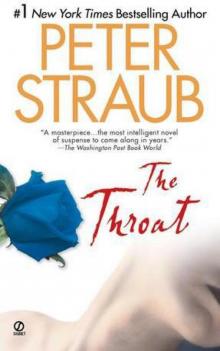 The Throat
The Throat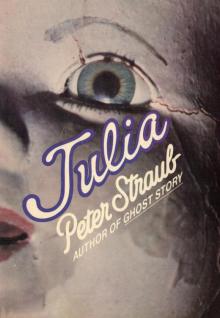 Julia
Julia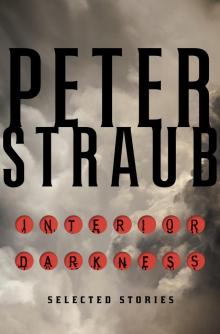 Interior Darkness: Selected Stories
Interior Darkness: Selected Stories A Dark Matter
A Dark Matter Floating Dragon
Floating Dragon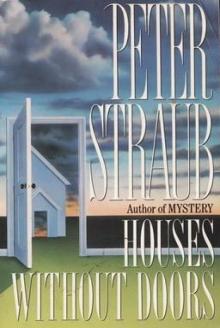 Houses Without Doors
Houses Without Doors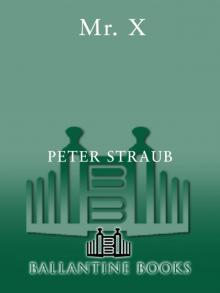 Mr. X
Mr. X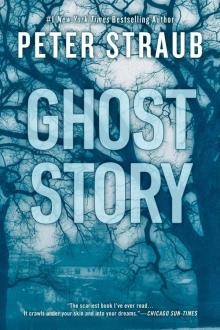 Ghost Story
Ghost Story Mystery
Mystery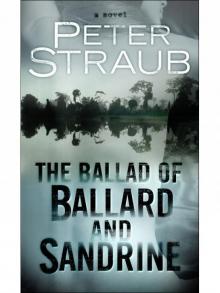 The Ballad of Ballard and Sandrine
The Ballad of Ballard and Sandrine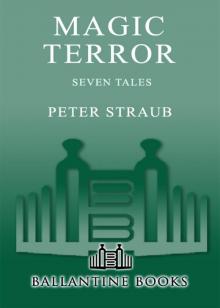 Magic Terror
Magic Terror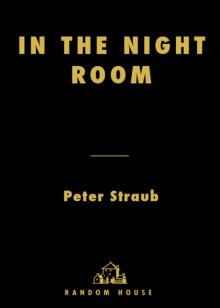 In the Night Room
In the Night Room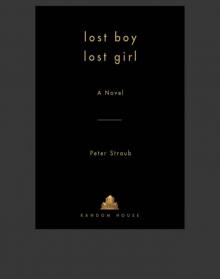 Lost Boy Lost Girl
Lost Boy Lost Girl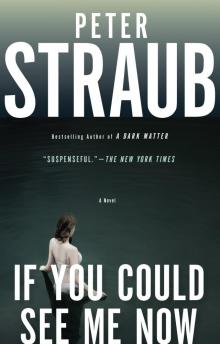 If You Could See Me Now
If You Could See Me Now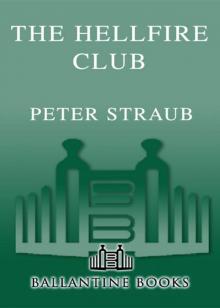 The Hellfire Club
The Hellfire Club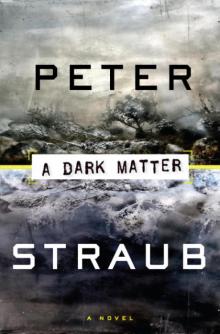 A Dark Matter: A Novel
A Dark Matter: A Novel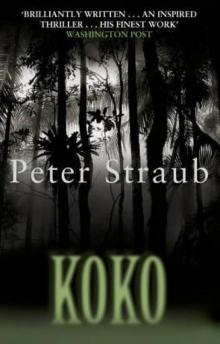 Koko brt-1
Koko brt-1 Shadowland
Shadowland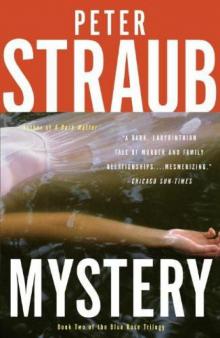 Mystery brt-2
Mystery brt-2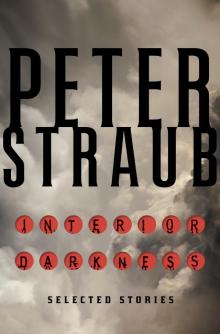 Interior Darkness
Interior Darkness Poe's Children
Poe's Children